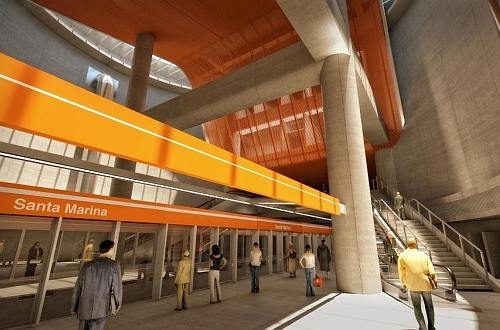The deal, which is MHI's first railway systems contract in South America, covers the design, procurement, installation, testing and commissioning of automation systems including signalling and telecommunications, power supplies, catenary, depot equipment, platform screen doors, and tunnel ventilation systems.
Move São Paulo was the only bidder to submit an offer to the São Paulo state government in a revised tender for the project with a bid of Reais 9.6bn ($US 4.17bn) for the 25-year concession, which is the second PPP rail project in the city after metro Line 4. The consortium comprises Odebrecht, Queiroz Galvão, UTC Participações and investment fund Eco Reality.
The north-south Line 6 will have 15 stations and will link Brasilândia with São Joaquim on Line 1. It is considered one of the most difficult metro lines to build because of the need to tunnel beneath the Tietê River at a depth of more than 60m.
The line will serve university campuses and the district of Higienopolis and is expected to carry around 633,000 passengers per day. Commercial services are due to start by 2020.

